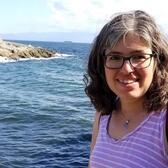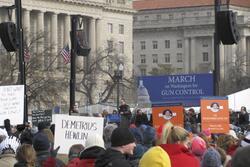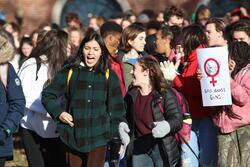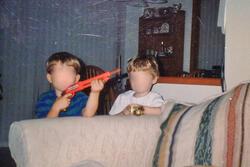As Jews, How Do We Think about Gun Violence?
For a very long time now, I’ve wrestled with how my Jewish identity impacts and informs my activism. Just when I thought I had figured it out, seismic changes in my own life and the world around me upended everything.
There have been too many events that have shaken our shared sense of safety as Jews in this country. On October 27, 2018, eleven Jews were shot down while in prayer, the deadliest attack on the Jewish community on American soil. In the aftermath of that mass shooting, and the subsequent synagogue attack in Poway, California, Jews have felt vulnerable in our collective spaces. As I write this, details are emerging about the shooting in Jersey City, which we now understand as another assault specifically targeting Jews. Our time, resources, and mental energy are now dominated by questions and conversations about safety and security. Our gathering places can no longer be open and welcoming, and instead are monitored by technology, police, guards, and hovering congregants. My own shul is no different, and as a regular synagogue-goer I have experienced the evolution of this new way of existing, culminating in a new system of guarding and checking worshippers in to our communal space on the busiest days of the year, Rosh Hashanah and Yom Kippur.
As the Jewish community in America has changed, so too has my own world. After over 20 years of working in the field of domestic and sexual violence, I shifted careers in May, and became the inaugural Executive Director of the Massachusetts Coalition to Prevent Gun Violence. My first months in this role have been exciting and more than a little overwhelming, with lots of learning and relationship building... and some more learning. I feel like I have just scraped the surface of all there is to understand about the uniquely American issue of gun violence. This work is fulfilling in many ways, but one of the things that I love the most is getting out into the community and talking with folks about the complexity of gun violence. Mass shootings dominate the news but actually account for a tiny number of overall firearm deaths; gun violence intersects with other issues such as domestic violence, racial and economic disparities, and criminal justice reform. Folks who know me know that I am not shy, and I am happy to talk about these issues (at great length, I might add) with anyone who will let me do so. Discussing gun violence in Jewish spaces is particularly meaningful to me—and not just because it gives me the opportunity to engage in my work in my own religious community.
It is meaningful to me because it is a manifestation of my religious community’s commitment to addressing how the world feels so unsafe, not just for Jews. The violence against us in Pittsburgh and Poway shook us to our core, and we should be thinking about our response to it. But as a Jew engaged in the work of gun violence prevention, it feels meaningful—in fact, necessary—that our conversations about safety for our individual congregations and Jewish spaces happen in concert with conversations about how gun violence impacts all communities and all neighborhoods. We need to talk about mass shootings, yes. We need to talk about security for our community and places of gathering, yes. But it feels incredibly important, and in fact incredibly Jewish, to have these conversations in the context of working to end gun violence for all people, of all communities.
I have been invited to speak at multiple synagogues and Jewish institutions about the work of gun violence prevention and how Jewish groups can engage in it, with more requests pending. I am thrilled this is happening and thrilled that so many synagogues have or are starting gun violence working groups. I would encourage all Jewish institutions, as they think about their response to rising antisemitic and white supremacist violence, to lend some of that energy to responding to the gun violence that occurs in urban communities of color. Our activism also needs to focus on other kinds of gun violence, such as domestic violence homicides (which claim an average of 50 lives a month), firearm suicides, and incidences of transphobic violence—transgender people who have been shot and killed in 2019. As we work toward making our Jewish spaces safer from gun violence, let’s work toward making neighborhoods and homes safer from gun violence as well.
I recognize that these conversations are hard. We hold a lot of different feelings about guns and the second amendment in the Jewish world. We must wrestle with thorny questions about the impact of increased police presence in Jewish spaces, particularly for Jews of color. I am struggling with the implications of having guards at our doors, making decisions on who we do or do not let into our buildings, which is ultimately going to be guided by the assumptions we make based on their appearance. There will be no perfect answers.
But in the absence of perfect answers, there are still very good questions to ask and conversations to have. I recently spoke as part of a panel at a local synagogue. One of the other speakers, an advocate for families in the aftermath of homicide, talked about how the work of safety for those most impacted by gun violence makes all of us safer. Yes, this. When we bring our Jewish selves to the work of gun violence prevention for all, our Jewish spaces will be safer as well.







Thanks sharing your comments and your dedication to preventing gun violence